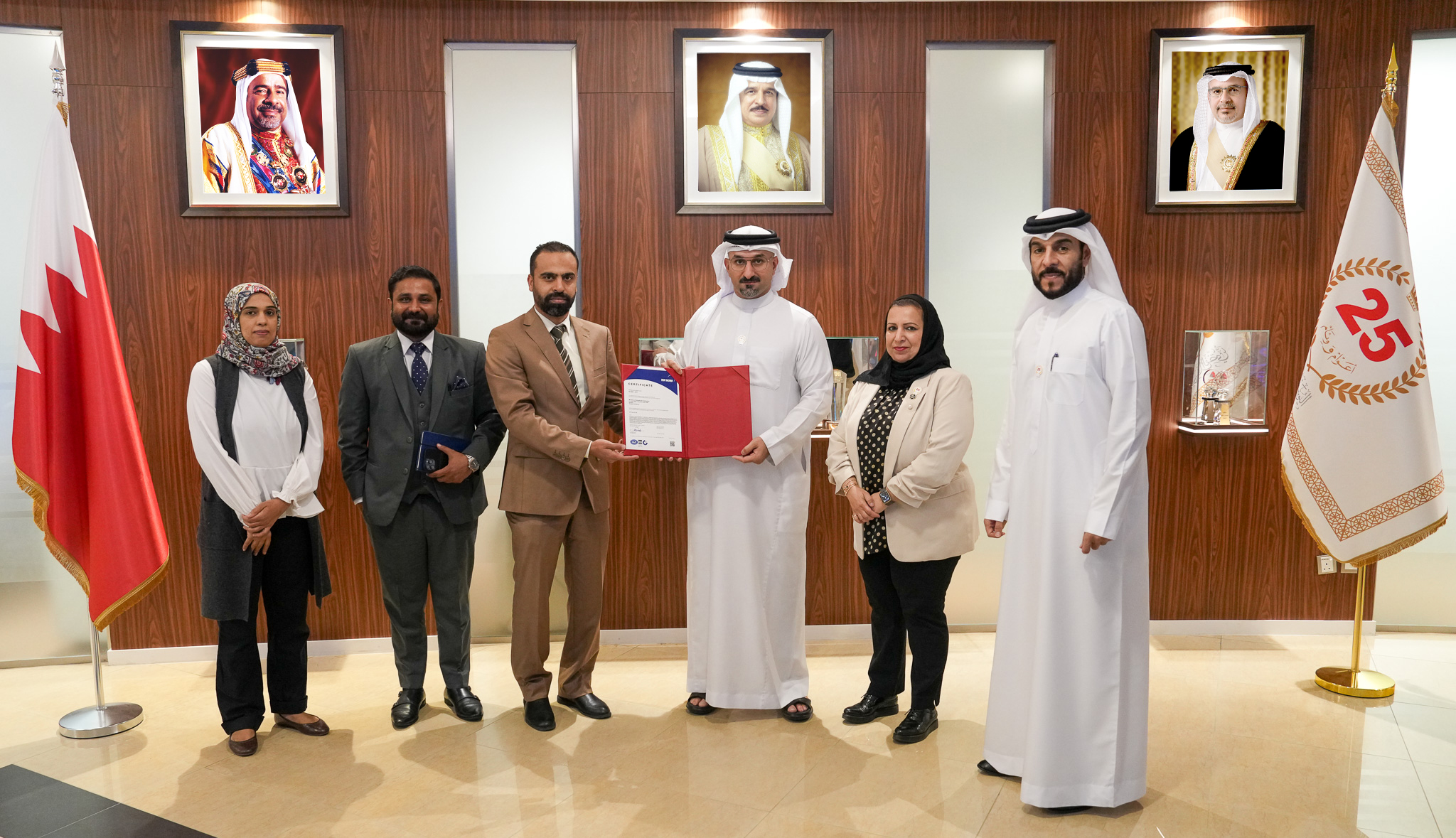
The Ministry of Industry and Commerce succeeded in passing the external audit of the ISO certificate in total quality management system according to international standards (ISO 9001:2015), after achieving all certificate requirements. The results of the external audit matched the specified frameworks for this entitlement, reflecting the ministry's commitment to the requirements and quality standards according to international specifications.
On this occasion, H.E. Mr. Abdulla bin Adel Fakhro, Minister of Industry and Commerce, stressed that this achievement is a result of tireless efforts to upgrade and activate the systems to develop various aspects of work, noting that the Ministry was able to maintain its distinguished balance in the sustainability of the application of the quality management system continuously as one of the leading government entities in applying the ISO 9001 quality management system, as the Ministry was granted its first certificate in 2002, and continued to pass the audit process every year. The Ministry is also keen to keep up with standard updates to apply them practically.
His Excellency explained that the Ministry of Industry and Commerce intensified efforts in applying best practices in effective planning to achieve annual performance level goals, constantly searching for opportunities for improvement to ensure the efficiency of service provision, and finding the best integration and coordination between departments to link operations properly, with the development of a mechanism to control potential risks, as well as effective documentation and internal audit to correct errors and prevent their recurrence.
Notably the Ministry of Industry and Commerce is one of the first ministries to obtain the Business Continuity Certificate ISO22301 2019 in the Kingdom of Bahrain. Which reflects the Ministry's commitment to achieving high efficiency service. As well as working to apply risk management to achieve objectives and ensure the continuity of work, by setting control factors for potential risks to operations and activities, and focusing on customers and concerned parties by understanding their needs and expectations.

